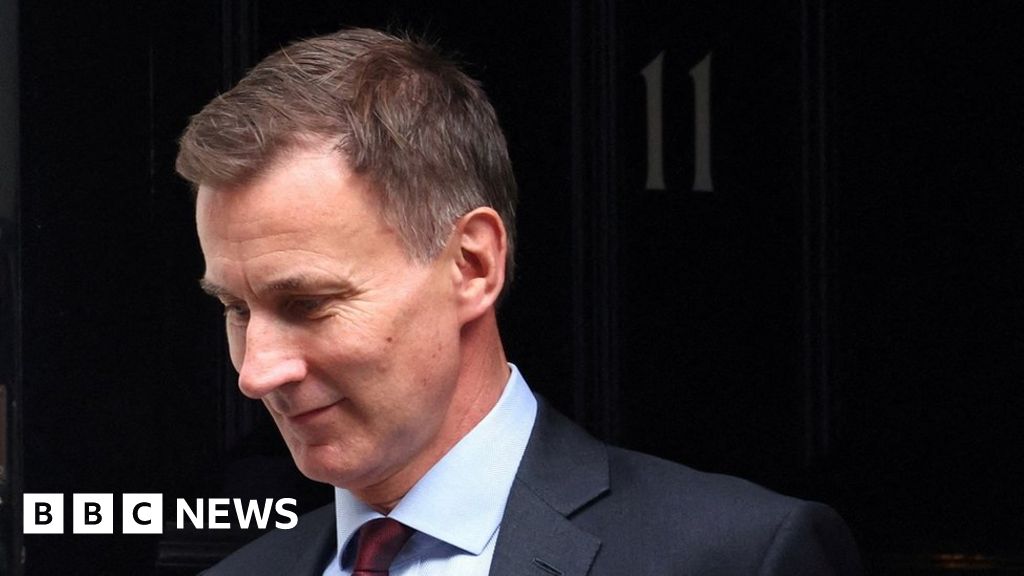- By Michael Race & Peter Saull
- BBC News
The chancellor is considering cutting inheritance and business taxes at next week’s Autumn Statement, the BBC has been told.
A Treasury source said no final decisions had been made, with Mr Hunt to consider such policies this weekend.
They added it is possible such tax cuts could be delayed until the spring.
Mr Hunt has previously said tax cuts are “virtually impossible” and instead warned of “frankly very difficult decisions” at next week’s Autumn Statement, which is when he will outline the government’s latest tax and spending decisions.
The chancellor is expected to receive the UK’s latest economic forecast from the Office of Budget Responsibility (OBR) – a body which assesses the health of the UK’s finances and is independent of the government – on Friday.
Despite playing down expectations of tax cuts, economists have estimated the chancellor could have more than £10bn to spend on measures such as tax cuts.
But the amount of cash the government deems it has available to spend is subject to its own, self-imposed spending and taxation – or fiscal – rules. Whether and how the government meets its rules, depends on its policy choices.
Most governments of wealthy countries follow fiscal rules in an attempt to maintain credibility with financial markets, which help to fund their plans.
Inheritance tax in the UK is a 40% tax on the value of the estate – the property, money and possessions – of someone who has died. It is charged on the part of an estate that’s above the threshold, but only applies to about 4% of estates.
No tax is paid if the estate is valued at less than £325,000, or if anything above this threshold is left to a husband or wife, civil partner, charity, or a community amateur sports club.
But if a home is part of the estate and a person’s children and grandchildren stand to inherit it, then the threshold can go up to £500,000.
The tax sparks considerable debate, partly owing to the fact many people are concerned about the tax and find it difficult to understand.
It is not clear what business taxes the chancellor might cut, but there are expectations that a tax break which allows firms to offset 100% of the money they spend on new machinery and equipment against their profits, will be extended or possibly be made permanent.
This policy – known as “full expensing” – is due to expire at the end of the 2025 tax year.
Prime Minister Rishi Sunak refused to give any clue if Mr Hunt would deliver tax cuts, but said there was “work to do” to ease the cost of living for people.
Labour leader Sir Keir Starmer said he would wait to see what was in the Autumn Statement before commenting on any plans to cut inheritance tax.
“What I want to see is a serious plan for growth,” he said.

William Turner is a seasoned U.K. correspondent with a deep understanding of domestic affairs. With a passion for British politics and culture, he provides insightful analysis and comprehensive coverage of events within the United Kingdom.








